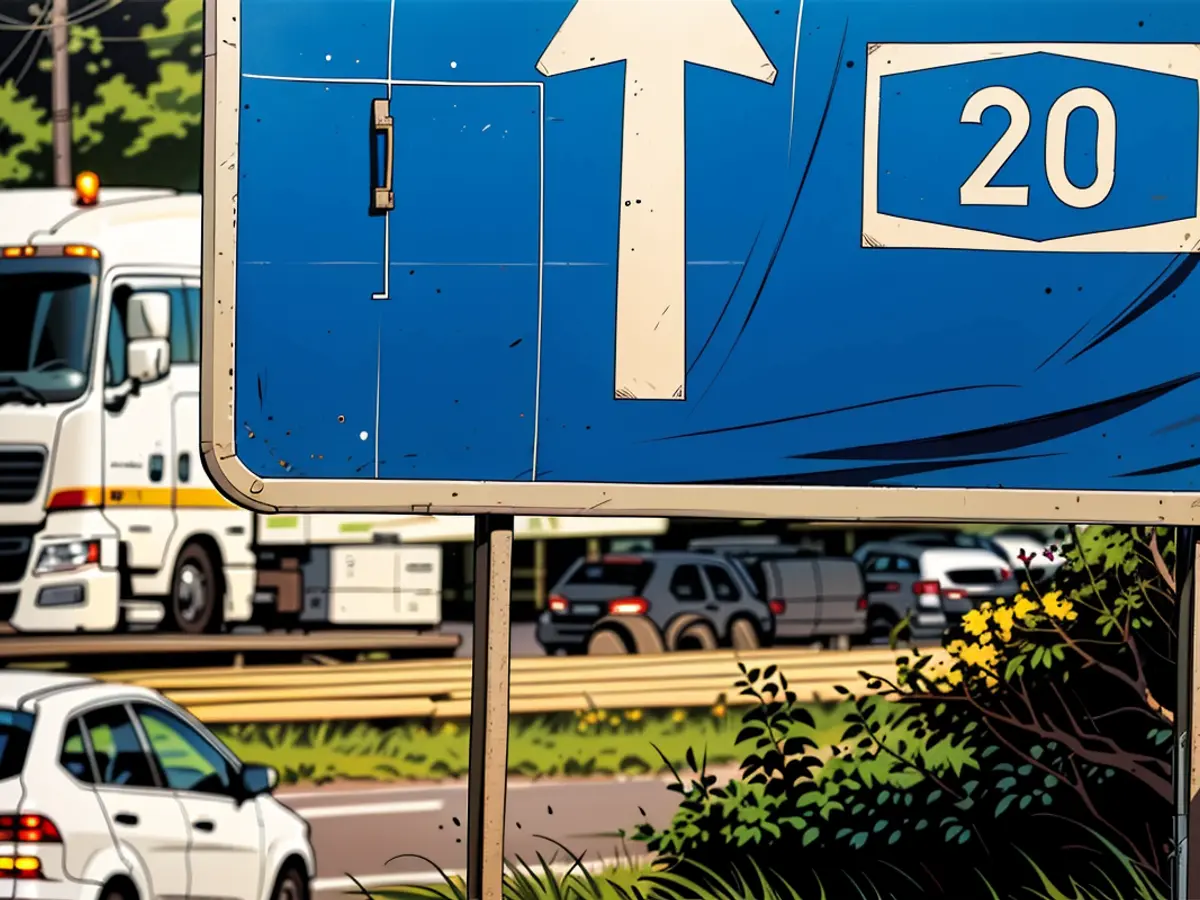Road construction - Wissing: Continue building the A20 as quickly as possible
Despite the tight household budget, German Transport Minister Volker Wissing (FDP) intends to launch new motorways, including in North Germany. "The A20 in Schleswig-Holstein is a very important motorway project that I want to start as soon as possible," Wissing said on Tuesday. "We are working hard to obtain building permits." Recently, there were doubts about the planned continuation of the coastal motorway in North Germany.
The northern German economy and the Schleswig-Holstein CDU called for a commitment from the federal government to fund the currently eastern part of the A20 in the federal budget in 2025 and in subsequent years. The Chamber of Commerce and the Union emphasized that the financing of the A20 in the federal budget for 2025 and the following years must be secured. There is also a lack of clear content and financial commitment from Wissing regarding the continuation of one of the central infrastructure axes for North Germany.
"Overriding Interest"
Hamburg's Mayor Peter Tschentscher (SPD) and Schleswig-Holstein's Minister President Daniel Günther (CDU) demonstrated unity on the sidelines of a joint cabinet meeting in Hamburg. Günther called the continuation of the A20 absolutely urgent and of overriding interest. "One only has to witness a trip from Brunsbüttel to Bremen, where one would not be far away if the A20 were there, and see the detours one has to take through Hamburg - then one realizes what an ecological nonsense we have been paying for ourselves for decades." Economic developments such as the settlement of Northvolt in Heide, "but also the security situation we have in Germany with all the requirements for the Bundeswehr, make the A20 absolutely necessary".
Tschentscher spoke of an important project for Hamburg. "We have many through traffic only on our city motorways and in part in the city, although those who want to travel to Hamburg are not even going to Hamburg but are just passing by it," Tschentscher said. Therefore, it is "short-sighted to say: the fewer motorway sections, the fewer vehicles".
Motorway projects are important for making traffic in Germany more efficient. The same applies to the A26-East. These projects are in the interest of the economy, private mobility, but also climate protection, "because unnecessary sections are avoided, and jams are avoided," said the Mayor.
Autobahn stretch before Bad Segeberg
Anyone traveling on the A20 motorway in a westerly direction will be brought to a halt in the middle of Schleswig-Holstein. The coastal motorway has been ending east of Bad Segeberg for more than ten years. The route should lead west of Hamburg and through a new Elbe tunnel to Lower Saxony.
The A20 winds its way through Schleswig-Holstein for a total of 39 kilometers. The Federal Administrative Court halted the construction in 2013. The judges saw the bat protection not sufficiently taken into account. The Segeberg Chalk Hill Caves are the largest bat hibernation site in Germany. For none of the six sections to the Elbe is practicable building law in place. Environmental associations are suing.
According to the Federal Transport Ministry, the four-lane new build of the A20 in Lower Saxony and Schleswig-Holstein including the western Elbe crossing is in "urgent need". The section between Weede and the A7 in Schleswig-Holstein is classified as a fixed measure. With these priority classifications, there is a parliamentary planning mandate to plan and implement the project accordingly, according to the ministry. Through the approximately 220 kilometer long new build, the German seaports at the North and Baltic Seas will be connected.
Criticism from Environmentalists
"Anyone who wants to live frugally should put the A20 to the test right away," said Greenpeace transport expert Lena Donat. With updated construction costs and damages caused by CO2, the coastal motorway clearly falls out of economic feasibility. "In this calculation, the massive environmental damages caused by an asphalt strip through moors and nature protection areas are not even fully taken into account." It would be better to repair existing roads and consistently expand rail transport in the north.
- Despite the budgetary situation, German Transport Minister Volker Wissing (FDP) plans to initiate new motorways, particularly in North Germany, focusing on the A20 in Schleswig-Holstein.
- The CDU in Schleswig-Holstein, along with the northern German economy, has pressed the Federal Government to fund the eastern part of the A20 in the federal budget for 2025 and subsequent years.
- Hamburg's Mayor Peter Tschentscher (SPD) and Schleswig-Holstein's Minister President Daniel Günther (CDU) agreed on the urgency and overriding interest of completing the A20.
- Günther pointed out the inconvenience of detours taken through Hamburg when traveling from Brunsbüttel to Bremen, emphasizing the necessity of the A20 due to economic developments and security concerns.
- Tschentscher recognized the A20 as an essential project for Hamburg, highlighting the burden of traffic on city motorways and the city itself.
- motorway projects, including the A26-East, are beneficial for Germany's economy, private mobility, and climate protection, according to Mayor Tschentscher.
- The current A20 motorway ends east of Bad Segeberg, withplans to extend it west of Hamburg and through a new Elbe tunnel to Lower Saxony.
- The environmental association is challenging the construction of the A20 in Schleswig-Holstein, citing inadequate protection for bat populations in the Segeberg Chalk Hill Caves.
- The Federal Transport Ministry asserts that the four-lane extension of the A20 in Lower Saxony and Schleswig-Holstein, including the western Elbe crossing, is crucial with fixed parliamentary planning mandates.
- Greenpeace transport expert, Lena Donat, questions the feasibility of the A20, arguing that updated construction costs, CO2 emissions, and environmental damage overwhelmingly outweigh its benefits.
- Instead of supporting the A20, Donat proposes repairing existing roads and expanding rail transport in the north as a more sustainable alternative.








